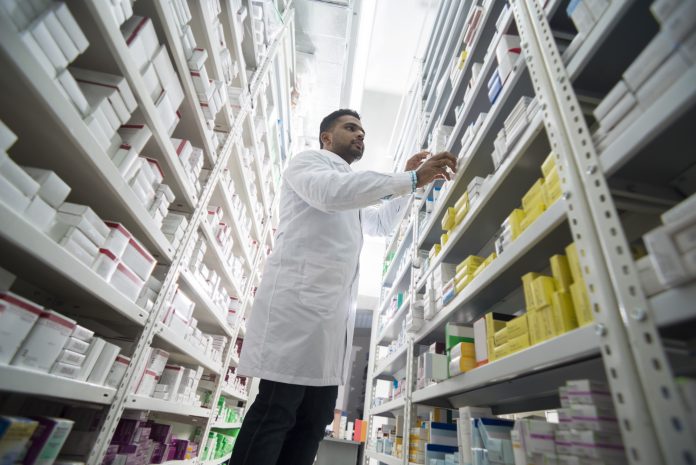Gino Martini, RPS Chief Scientist and the Science and Research Team at the Royal Pharmaceutical Society reflect on the role of pharmacy during COVID-19 in delivering accessible, safe and effective care for all
Thinking about the role of pharmacy during COVID-19, we’ve demonstrated how vital a profession we are in supporting our NHS. What’s obvious about community pharmacy is, to me, summarised by three words: accessibility, accessibility and accessibility!
Community pharmacies in the UK during COVID-19
Pharmacies, as demonstrated by the pandemic, remain open for patients even at the most difficult of times, delivering safe and effective care for all and giving patients access to their medicines. We are easily accessible, sitting in the heart of communities, ready for people to visit without an appointment. It’s estimated in England, for example, that 1.6 million people visit a community pharmacy every day.
Pharmacists, using their scientific knowledge as experts in medicines, have an essential role in providing information and advice to patients and the general public, as well as dealing with personal fears about vaccinations. This is particularly important in situations where there is so much misinformation, particularly currently with so many different facts and opinions around the new COVID-19 vaccine.
Community pharmacies are flexible and adaptable, which means that we have the potential to continue expanding our role to ease the pressure on the NHS. This winter, more than ever, it has been critical to keeping people healthy, by ensuring they can get their medicines as well as vaccines. Pharmacists have been helping to maximise the number of people who receive vaccinations, to help achieve the UK Government’s ambition of delivering “the most comprehensive flu programme in the UK’s history”. This is likely to be followed by a new COVID-19 vaccination programme.
What services do community pharmacists currently offer?
Currently, community pharmacists provide a range of vaccination services, including travel vaccines, hepatitis B and, of course, the flu. During winter 2020/21, the flu season is expected to have a huge impact on the NHS and our communities, particularly due to the added pressure of the COVID-19 pandemic. During the crisis, there have been some incredible examples of locally commissioned services, showing pharmacists pushing the boundaries on what the profession can do through flu vaccinations. We have seen pharmacists offering vaccinations on a mass scale, hiring out halls and sports centres to scale delivery, and ultimately extending the number of people they can vaccinate.
There will always be challenges to overcome when offering extended immunisation services. Patient safety will always be the number one priority for pharmacists and their teams, and this can be particularly challenging in the light of a pandemic.
It was welcome news that NHS England & Improvement approved the relaxation of regulations around opening times, which will really support pharmacies to be able to facilitate and deliver mass vaccination programmes, such as COVID-19.
A new COVID-19 vaccine and a new service provision?
Pharmacists have been responsible for the oversight of new trials launched during the pandemic, ensuring that all practical aspects comply with scientific, legal, ethical and organisational requirements. Looking ahead to the rollout of a COVID-19 vaccine, pharmacists and other professionals will be responsible for the large-scale manufacturing, supply and administration of these vaccines. It is evident that some COVID-19 vaccines may require specialist storage and handling, as well as requiring the additional boosters to ensure immunisation. Pharmacy will be central to supporting a national vaccination programme to ensure successful delivery and implementation.
How can we work better with other health professionals? Ahead of the 2020/2021 flu season, we agreed on a series of principles and recommendations with the Royal College of General Practitioners (RCGP) on collaborating between professions to support vaccinations. We are taking enormous pressure off other NHS services, seeing patients who cannot get a GP or hospital appointment during this time, dealing with the increased demand in medicines and embracing new ways of working.
These are unprecedented times that have presented new challenges to our profession, but we are confident that, if we create the right conditions, our profession can play an instrumental role in providing expanded services in the future.











